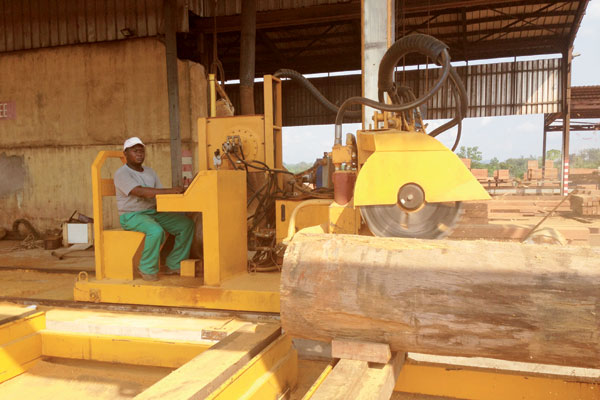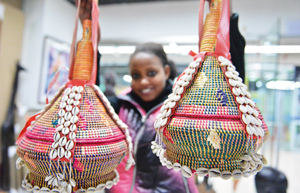 |
|
A staff member at Gabon Sunry's forest in Gabon. The Chinese company employs more than 300 people in the African nation, 70 percent of them locals. Provided to China Daily |
Gabon's forests are a rich find for company that fells 'green' gold
Lu Gaochao is proud to claim that he works with the soul of Gabon: its forests. He logs a section of forest his company bought. Now and again he comes across tribes who have lived there for hundreds of years and who have never had contact with the outside world.
He has befriended chiefs and sends rice and sugar to villagers every year to atone for the disturbance that logging brings to their habitat, he says.
Lu is general manager of Gabon Sunry, the overseas investment arm of China Tuhsu Co Ltd, which deals mainly in timber, tea and animal byproducts. He has been in the timber business in Africa for six years.
Gabon's nickname, "the country of green gold", is a reflection of how important forests are to its people and its future. They cover more than 85 percent of the country and account for more than 10 percent of its exports. The country's flag is green, gold and blue, representing forests, the equator and the sea.
There are about 30 big Chinese timber companies in Gabon. Sunry is one of the biggest. Sunry says that since it was set up in 2006 it has invested about 600 million yuan ($99 million) in the former French colony and now employs more than 300 people, 70 percent of them locals.
Sunry is closely connected with log trading and processing and, since 2006, has bought more than 950,000 hectares of forest in Gabon and has a license to fell trees.
Every section of forest that companies buy is divided into 25 parts, and tree felling is limited to a designated area every year. The law also requires that trees felled be a minimum 60 cm in diameter to guarantee sustainable development.
Gabon's forests are so untouched that roads need to be built before logging can take place. Trucks to carry timber are usually more than 10 meters long.
"China is growing quickly, it needs a lot of timber, so Chinese companies have been very active here over the years," Lu says. Until a few years ago Sunry was exporting logs worth 1 billion yuan a year.
That all changed in May 2010 when the government banned the export of logs, allowing the export of processed wood products only. By doing this, it wanted to support the local processing industry and create more jobs.
To avoid companies doing superficial processing to get around this, the regulations stipulate that regardless of the height, every piece of processed timber product has to be no longer than 80 cm and no wider than 25 cm.
The rules were announced and enacted with very little warning. More than one-third of timber companies closed or moved to neighboring countries with no such restrictions, such as the Democratic Republic of Congo.
Don't miss
|
 |
 |
